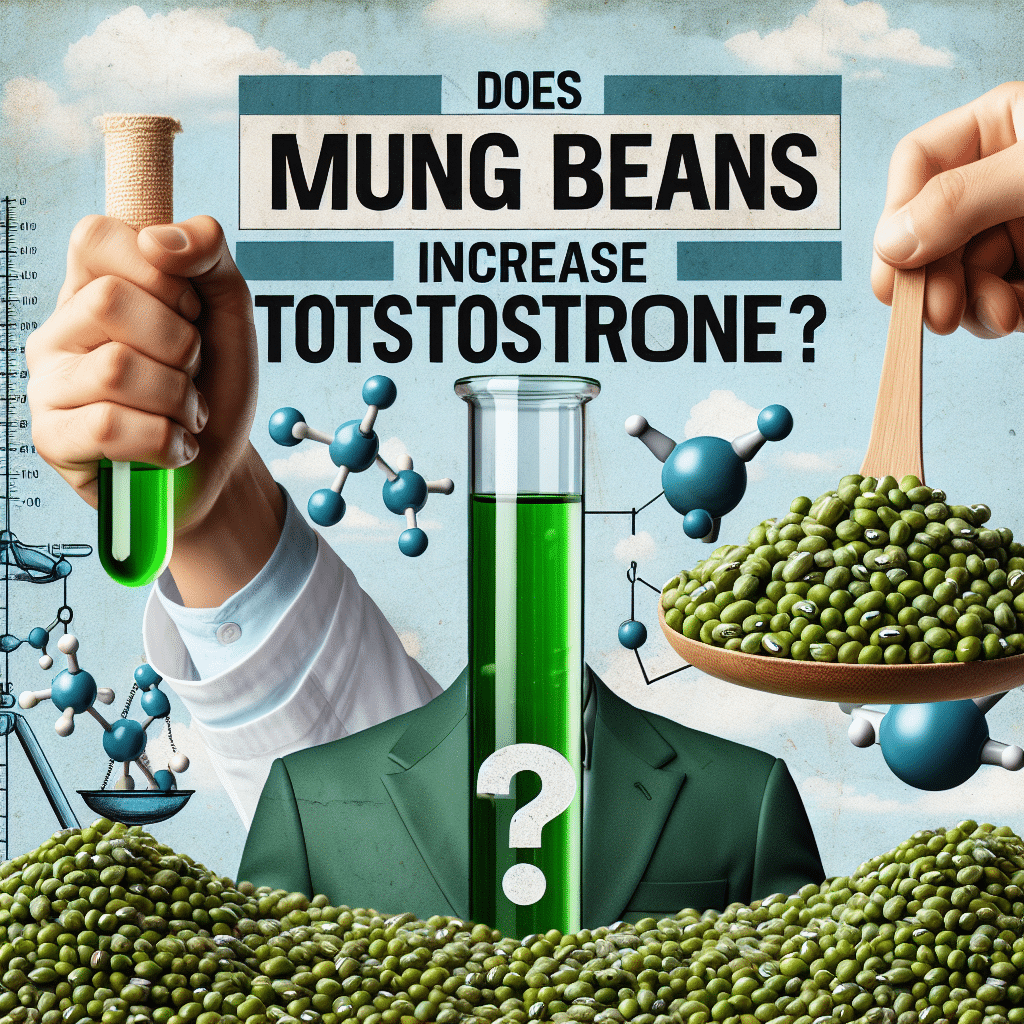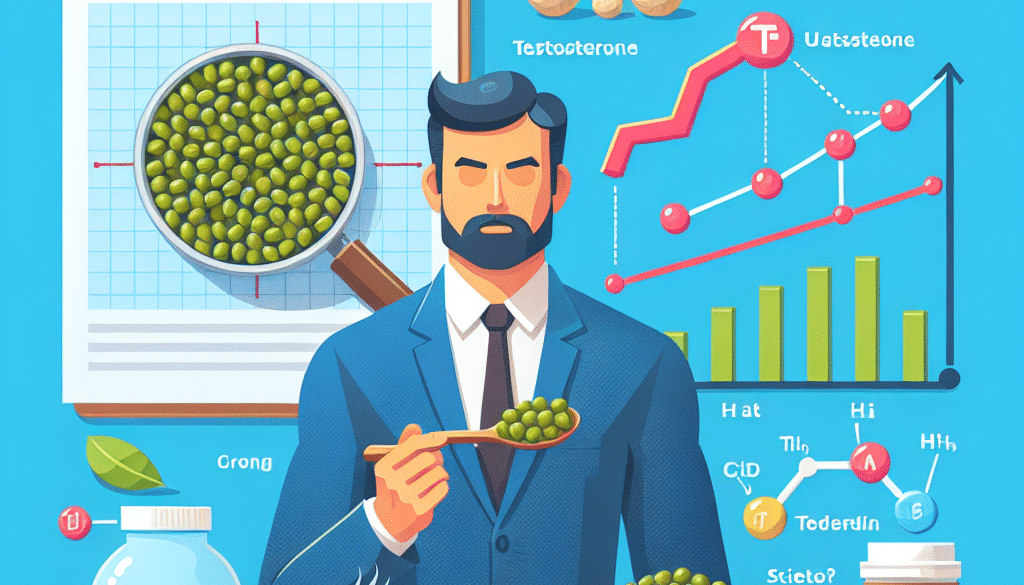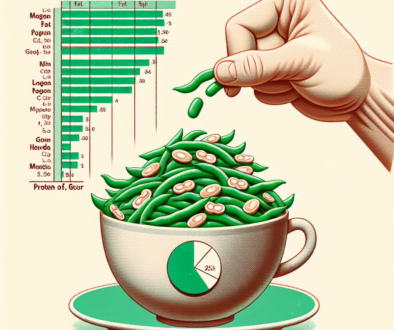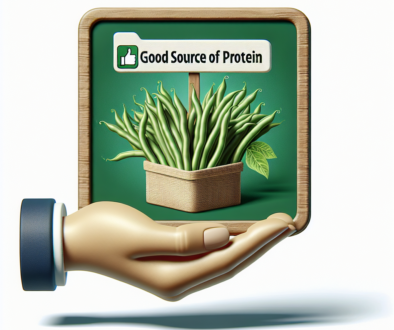Does Mung Beans Increase Testosterone?
-
Table of Contents
- Mung Beans and Testosterone: Unveiling the Connection
- Understanding Testosterone and Its Importance
- Nutritional Profile of Mung Beans
- Do Mung Beans Increase Testosterone?
- Zinc and Testosterone
- Protein and Hormone Regulation
- Antioxidants and Hormonal Balance
- Research Findings
- Case Studies and Statistics
- Conclusion: The Verdict on Mung Beans and Testosterone
- Boost Your Protein Intake with ETprotein’s Quality Products
Mung Beans and Testosterone: Unveiling the Connection

Testosterone is a crucial hormone in the human body, especially for men, as it plays a vital role in muscle growth, bone density, and libido. With the increasing interest in natural ways to boost testosterone levels, many are turning to dietary choices to positively influence their hormonal health. Mung beans, a staple in many Asian cuisines, have been touted for their health benefits, but can they actually increase testosterone levels? This article delves into the science behind mung beans and their potential impact on testosterone.
Understanding Testosterone and Its Importance
Testosterone is the primary male sex hormone, although it is also present in females in smaller amounts. It is responsible for the development of male reproductive tissues, the promotion of secondary sexual characteristics, and the overall regulation of sexual function. In addition to its reproductive role, testosterone is also essential for:
- Muscle mass and strength
- Bone density and health
- Fat distribution
- Red blood cell production
- Mood and energy levels
Low testosterone levels can lead to a variety of health issues, including decreased muscle mass, increased body fat, osteoporosis, fatigue, and a lowered sex drive. Therefore, maintaining optimal testosterone levels is important for overall health and well-being.
Nutritional Profile of Mung Beans
Mung beans are small, green legumes that are packed with nutrients. They are a rich source of:
- Protein
- Dietary fiber
- Antioxidants
- Vitamins, such as vitamin C and B vitamins
- Minerals, including magnesium, potassium, and zinc
Their high protein content makes mung beans a popular choice among vegetarians and vegans. Additionally, the presence of zinc, a mineral known to play a role in testosterone production, has sparked interest in the potential testosterone-boosting properties of mung beans.
Do Mung Beans Increase Testosterone?
While mung beans are nutritious, the question remains: do they have a direct impact on testosterone levels? To answer this, we must look at the scientific evidence and understand how certain nutrients affect hormone production.
Zinc and Testosterone
Zinc is a trace mineral that is essential for many bodily functions, including immune response, cell division, and hormone production. Studies have shown that zinc deficiency can lead to reduced testosterone levels. Since mung beans contain zinc, they could potentially contribute to maintaining adequate testosterone levels, especially in individuals with a zinc-deficient diet.
Protein and Hormone Regulation
Protein intake is crucial for the synthesis of hormones, including testosterone. Mung beans, being a good source of plant-based protein, can support overall hormone health. However, it is important to note that the relationship between protein intake and testosterone is complex and can vary based on overall diet and individual health factors.
Antioxidants and Hormonal Balance
Antioxidants play a role in protecting the body from oxidative stress, which can negatively impact testosterone levels. Mung beans are rich in antioxidants, which may help in maintaining hormonal balance by mitigating the effects of oxidative stress on the body.
Research Findings
Despite the theoretical benefits, there is limited research directly linking mung beans to increased testosterone levels. Most studies focus on the broader impact of diet on hormonal health rather than the effects of specific foods like mung beans. Therefore, while mung beans may contribute to a healthy diet that supports testosterone production, they are not a magic solution for boosting testosterone levels.
Case Studies and Statistics
While specific studies on mung beans and testosterone are scarce, broader research on diet and testosterone provides some insights:
- A study published in the “Journal of Steroid Biochemistry” found that men with adequate zinc intake had higher testosterone levels than those with zinc deficiencies.
- Research in the “European Journal of Clinical Nutrition” suggests that diets high in protein can support the production of hormones, including testosterone.
- According to a study in the “International Journal of Endocrinology,” antioxidants can improve reproductive health and may influence testosterone levels.
These studies suggest that a diet rich in essential nutrients like zinc, protein, and antioxidants can support testosterone production, which indirectly points to the potential benefits of including mung beans in one’s diet.
Conclusion: The Verdict on Mung Beans and Testosterone
In conclusion, while mung beans are a nutritious food that contains elements beneficial for testosterone production, such as zinc and protein, there is no conclusive evidence that they directly increase testosterone levels. They can be part of a balanced diet that supports overall hormonal health. For those looking to boost testosterone levels, it is important to focus on a comprehensive approach that includes a balanced diet, regular exercise, and adequate sleep, rather than relying solely on specific foods.
Boost Your Protein Intake with ETprotein’s Quality Products
If you’re looking to enhance your diet with high-quality protein sources, consider ETprotein’s range of organic bulk vegan proteins. Their mung bean protein is an excellent option for those seeking plant-based alternatives to support their nutritional and hormonal health. ETprotein’s products are characterized by their neutral taste, non-GMO, and allergen-free attributes, making them a great addition to any diet.
About ETprotein:
ETprotein, a reputable protein and L-(+)-Ergothioneine (EGT) Chinese factory manufacturer and supplier, is renowned for producing, stocking, exporting, and delivering the highest quality organic bulk vegan proteins and L-(+)-Ergothioneine. They include Organic rice protein, clear rice protein, pea protein, clear pea protein, watermelon seed protein, pumpkin seed protein, sunflower seed protein, mung bean protein, peanut protein, and L-(+)-Ergothioneine EGT Pharmaceutical grade, L-(+)-Ergothioneine EGT food grade, L-(+)-Ergothioneine EGT cosmetic grade, L-(+)-Ergothioneine EGT reference grade and L-(+)-Ergothioneine EGT standard. Their offerings, characterized by a neutral taste, non-GMO, allergen-free attributes, with L-(+)-Ergothioneine purity over 98%, 99%, cater to a diverse range of industries. They serve nutraceutical, pharmaceutical, cosmeceutical, veterinary, as well as food and beverage finished product distributors, traders, and manufacturers across Europe, USA, Canada, Australia, Thailand, Japan, Korea, Brazil, and Chile, among others.
ETprotein specialization includes exporting and delivering tailor-made protein powder and finished nutritional supplements. Their extensive product range covers sectors like Food and Beverage, Sports Nutrition, Weight Management, Dietary Supplements, Health and Wellness Products, and Infant Formula, ensuring comprehensive solutions to meet all your protein needs.
As a trusted company by leading global food and beverage brands and Fortune 500 companies, ETprotein reinforces China’s reputation in the global arena. For more information or to sample their products, please contact them and email sales(at)ETprotein.com today.












